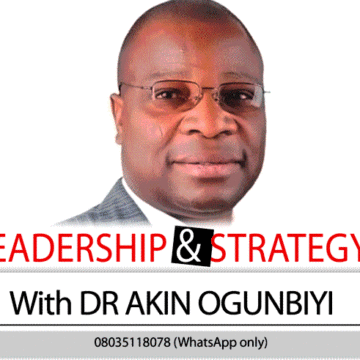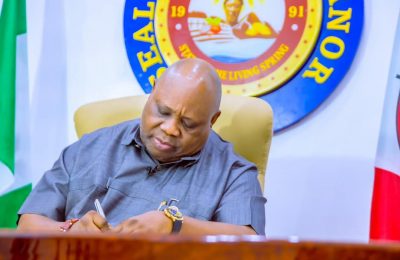

Today, we will be discussing the anti-high performance leader. The leader who unwittingly slides into the “roadblock” mode and obstructs high performance and exponential growth.
He leads with a sense of self-importance. Instead of aligning his team with defining organisational identity (essential distinctions) and goals (purpose and aspirations), his personality is the executive, the chief officer and administrator.

He is satisfied that his numbers are looking good and therefore forgets the fact that his people created these numbers. He turns a blind eye to declining organisational culture as a result of prevalent negative behaviours and sharp practices. He shuns murmurings of discontent and loud whispers of bias and favouritism. His organisation is no longer a model of innovation, creativity, excellence and integrity. He is disrespectful and only the potentials of his favourites are recognised and rewarded.
This leader is more focused on maintaining his authority. He no longer tolerates focused critique of plans and strategies. He places tremendous pressure on optimization without the required support. His only interest is short term gains while he ignores their long term consequences. He loves profit margins and maximising the little he has achieved. Impact of decisions on employees is ignored. He is the insecure boss who is threatened by the unique values of others. He is the credit snatcher who attributes every success to himself.
The smart leader does not just achieve productivity from the workforce, he invests in the employees. He does not have answers to everything. He is therefore, always asking the right questions and he is also a great listener. He takes decisions collaboratively. He is the guide not the hero. His teammates look up to him and follow him for inspiration and encouragement. He regularly removes obstacles on their path to progress and career acceleration. When the leader plays the hero he ends-up micromanaging. Great leaders are always learning so that they do not go stale. They are never stuck in one mindset. They learn and adapt.
As value-deliverers, we thrive as team members in our readiness and ability to work together. Team members must appreciate each other’s role, expertise and context. Coming together is the beginning, keeping together is progress and working together is success.
Leadership is not about title, status and power. It is about value-delivering service. The leader must invest in his colleagues, serve them, develop them, believe in them and maximise their potentials. He must treat his teammates with kindness and respect. They want their ideas heard and their points-of-view taken into consideration. The leader must always get the team working together and achieving great things together.
The reason we have anti-high performance leaders is that usually, in most organisations, operational or technical leaders are promoted to strategic positions without carefully navigating the shift by imbuing in them the knowledge of strategic thinking. Leadership is strategic and less about what you do. It is more about how you guide others, inspire them and also support them as well as ensure their success.
Great leaders engage, inspire and support. They literarily put fire out everyday and prevent the sparks from becoming conflagration. They are like the petrol in the car. When morale is high among team members, they deliver more, try harder and accomplish more. The organisation then enjoys more and better outcomes.
Being more strategic is about the organisation’s performance. It depends on how the leader can foster this and position his people to excel by contributing their best. Technical experts must be supported to successfully make this shift. The leader must know how to measure strategic successes and not just operational successes. Tactics must connect to team-aims. Team-aims must connect to organisational aims. Every decision must take into account the broader organisational views of the situation rather than just the technical and tactical.
The strategic leader must note the following: Do not micromanage. Do not take on the responsibility you do not need to take on. Value your strategic skill as value-add. Setup processes instead of doing everything on your own. Do not imagine that some teammates are threatening your ego. Move into the strategic mindset and let your intervention be appropriate. Create enough space for strategic thinking. Your organisation must be working at its best and outperforming other systems. Let your colleagues handle the details and limit your contact with them to coordination and problem-solving. Your communication approach must be dialogic. Do not do top-down in giving frameworks. There is value from the ground-up. Always be mindful of the fact that strategy is about maximally utilising all your resources for profitability and growth. Do not forget the modesty and willingness to pitch-in when things get hectic. You must change the culture of rigidity, hierarchical attitudes and arrogance. You must never belittle your colleagues. Respect should flow up and down. The workplace must exude respect, equality and character over status.
In conclusion, today’s leader in order to drive high performance, must lead with impact. There must be a transformation from the traditional model of leadership to the value-based model.
We cannot achieve high performance by just hitting our targets annually and polishing up performance. BLM leaders (Bottom Line Managers) must phenomenally improve on the measures of their performance goals. Please note that an impactful leader produces great performance and develops agility in his activities. He is self-reflective and is always asking himself about his values, purpose and the examples he is setting for others. He inspires and builds a formidable and sustainable organisation with trust and integrity as pillars. He achieves overall organisational impact through constant values exploration, articulation and awareness. He is always creative, always innovating and providing additional value to colleagues. He is the leader that his teammates want to follow. He energises them because his smart leadership qualities are demonstrated in enviable and impactful ways.
READ ALSO: Lagos: Train crushes man to death in Oshodi








